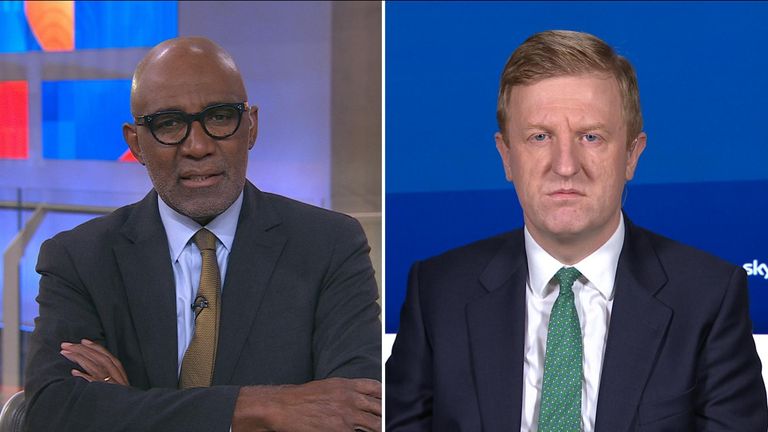Lee Anderson row blunts Rishi Sunak’s moral authority on racism


Another week, another row about racism in one of the two main Westminster parties.
Following incendiary comments about Muslims from both Suella Braverman and Lee Anderson, Deputy Prime Minister Oliver Dowden was sent out this morning to dampen the flames.
Except that, by being less than full-throated in his condemnation, he managed to fan them still further.
Although even without that unhelpful intervention, the Conservative Party was on the back foot.
Yes, Lee Anderson had been suspended. But not, it appeared, because his comments themselves were beyond the pale. Rather, it was because he had failed to apologise.
The implication being that had he said sorry, all would have been forgiven.
It’s a remarkably similar situation to Labour’s recent troubles over their candidate in Rochdale.
Before he was eventually suspended, Labour said their candidate Azhar Ali had apologised for his antisemitic comments, and stuck by him.
For that decision, Labour was hammered by the Conservatives.
Advertisement
Please use Chrome browser for a more accessible video player
2:46
Deputy PM won’t say if Anderson is racist
So which is it? Does an apology suffice, or should people who say racist things expect to be suspended?
And now, having spent weeks attacking Sir Keir Starmer over antisemitism, Rishi Sunak has failed to quell a racism row in his own party. That means he is less able to speak with moral authority on the issue, and it blunts an avenue of political attack.
Read more:
Tory MPs believe suspension a mistake, leaked WhatsApps reveal
Click to subscribe to Politics at Jack and Sam’s wherever you get your podcasts
Across Britain, there are just 17 Conservative seats with Muslim populations over 10%.
One of those is Harrow East, where we visited a local mosque for 4pm prayers. Voters there were angry at what they see as yet more Islamophobia from the Conservative Party.
Boris Johnson’s infamous “letter boxes” comment was brought up repeatedly, unprompted. They think they see a pattern here, and say they certainly aren’t planning to vote Conservative at the next election.
But then, not many Muslims do. A recent Survation poll suggested it was around 8%.
So in that sense the electoral risk comes less from losing Muslim votes, than from a more widespread perception that the party once dubbed the “nasty party” still has a nasty streak.